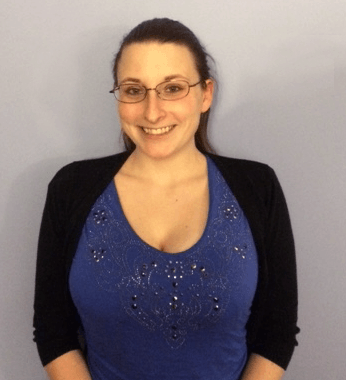 Nicole Mascolo has served as a pharmacist for three years at Brigham and Women’s Hospital, a 793 bed general medical and surgical facility in Boston, Massachusetts. Prior to becoming a registered pharmacist, Mascolo worked there four years as a pharmacy technician while earning her Pharm.D at Massachusetts College of Pharmacy & Health Sciences University.
Nicole Mascolo has served as a pharmacist for three years at Brigham and Women’s Hospital, a 793 bed general medical and surgical facility in Boston, Massachusetts. Prior to becoming a registered pharmacist, Mascolo worked there four years as a pharmacy technician while earning her Pharm.D at Massachusetts College of Pharmacy & Health Sciences University.
What is the biggest challenge you faced in your first two years as a hospital pharmacist?
I really liked that I got to stay at Brigham & Women’s – I was promoted to pharmacist here after earning my degree. Even though I came back to the same hospital, learning all of the new policies is tough. Like any pharmacy, my co-workers are great and everyone helps everyone out. I was glad that I already knew many of the policies from my time as a technician so I had a head start in my transition to full-time pharmacist.
What is the biggest difference between being a tech versus a pharmacist?
The responsibility. You are the last person to see this drug before it goes to the patient. As a technician there is always a buffer because the pharmacist will make the final decision. Now those decisions are mine. It can be challenging but at the same time, I love it.
You have worked both roles so can you tell us something most pharmacists don’t understand about technicians and their jobs?
We each have our own stuff to do. Many pharmacists will quickly say, “The tech can do it. The tech can do it.” But, there are only so many hours in a shift and the technicians already have a long list of tasks assigned to them. We all have to work together to get things done. It is a team effort. I probably have a little better understanding of the pressure that techs are already under and try to make sure I keep that in mind when we are working together.
What do you know now that you most wish you knew when you first started?
Not to sweat the small stuff. Especially in healthcare, there are so many people working together it is hard not to step on anyone’s toes throughout a day. There will be conflict, but we are all on the same team. We’re all here for the same reason: patient safety. You can work out the differences that are bound to come up.
Also, in the beginning, when you first become a pharmacist, you are focused on looking at every possible angle of a case. You want to make sure everything goes well all the time. But you have to learn to trust your training and experience.
What is an overlooked area today where hospital pharmacies can become more efficient?
Drug shortages are probably the toughest problem today. Every week we have an email that goes out with instructions about all of the drugs on shortage and the plan to manage the situation. We have to approve each drug that is on shortage for use and that involves so many extra steps. We have to check the email and then see what we have left since the time it was sent out. Plus, if we run out of it, but another hospital has it, we try to get the drug from them. It’s a lot of extra work. Everyday it’s a problem.
How do you spend your leisure time outside of work?
My husband and I like to go camping. We enjoy traveling and have a trip to Europe coming up and plan to visit Amsterdam, France, and Switzerland.
What question should I have asked, but didn’t?
How do you deal with tough challenges? I typically go back to our department motto: always do the right things right. It is important to not just do things but to understand what is the right thing to do. Also, the saying around here is: adapt, overcome and persevere. As a hospital pharmacist, every day is different with new patients and new obstacles. You need to be ready to adapt.